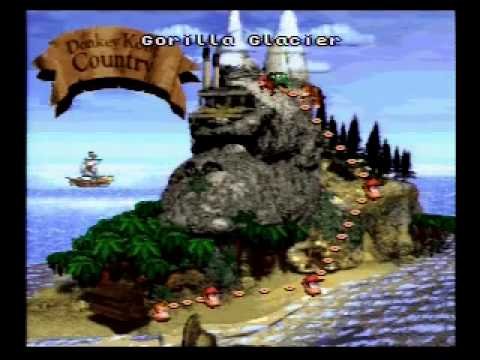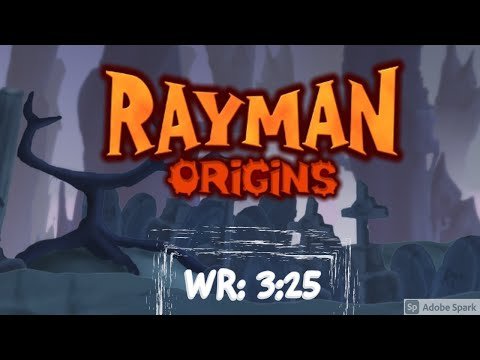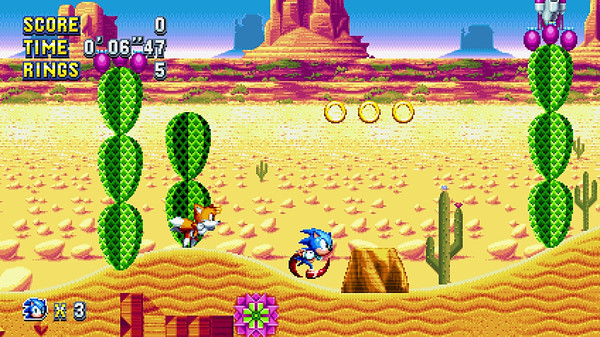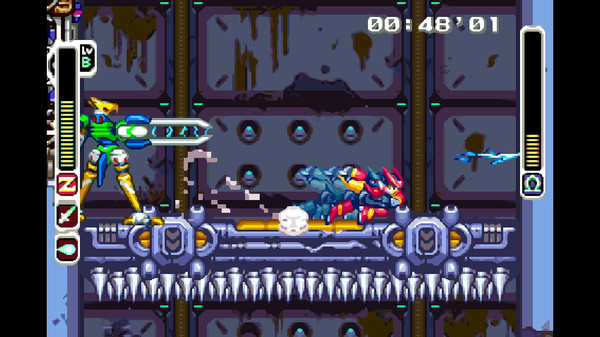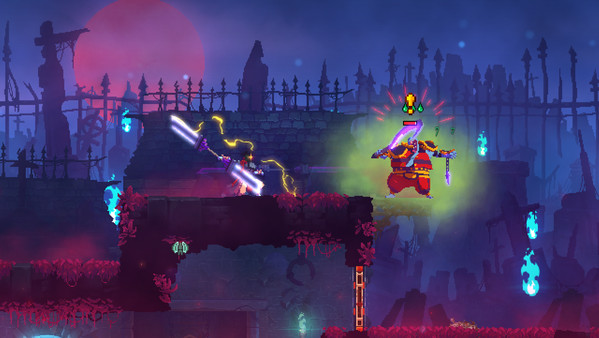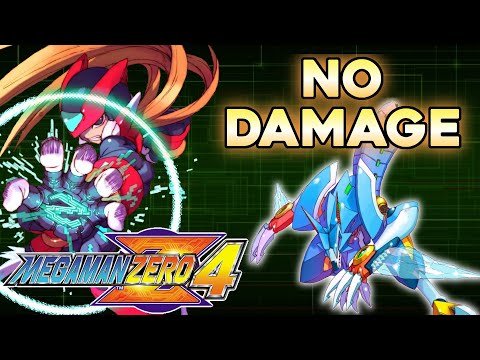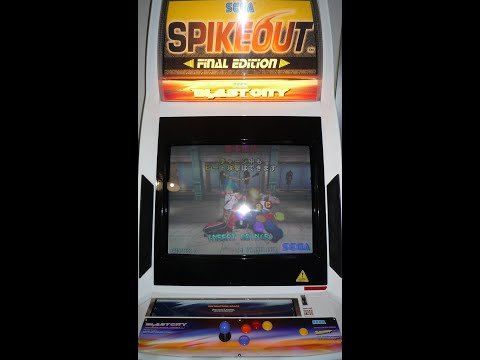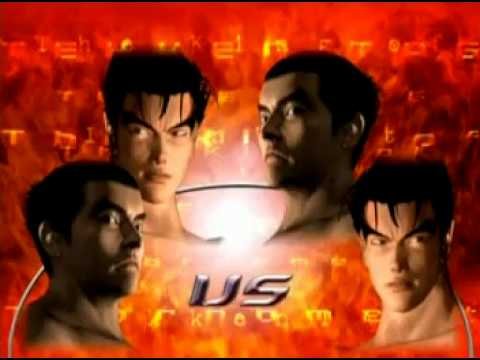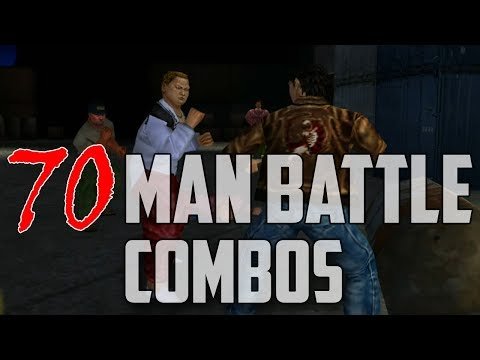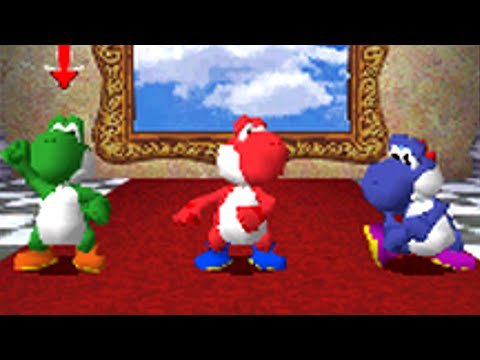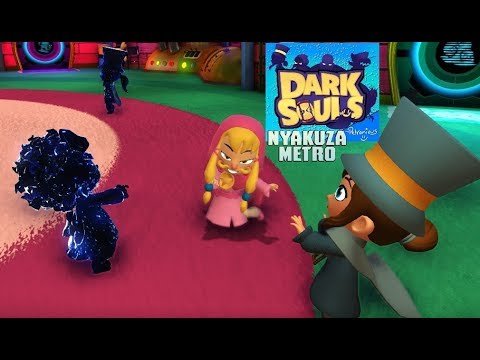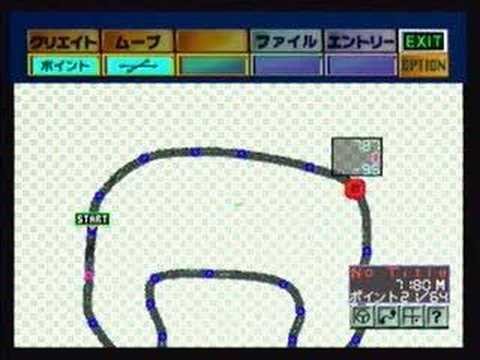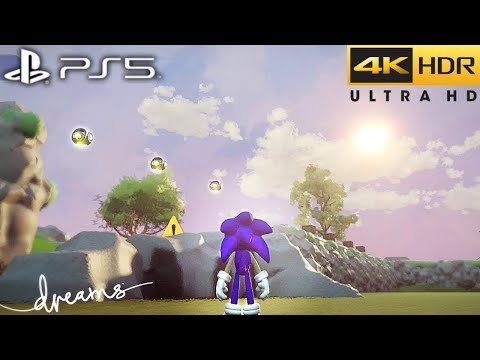English
So recently I was thinking about that one question of "a perfect videogame"...and I spent a good while thinking about what I could answer to that since not only the "perfect game" is objectively impossible because the critical value of a game is entirely subjective to an individual's preference (for example, games that are considered bad or mediocre can still have their fans, or people that would still enjoy a game in midst of many game-breaking bugs because its funny), but also myself I never have been too much of a "game-rating" person due to my very spread amount of games I like.
I had thought on some few genres about what could have been my perfect game, but with FPS and Racing games, there's always something in almost every game that's different but that keeps me getting back to them so I can't say either my favorite FPS/Racing game (though I'd say its a tie between Daytona USA and F-Zero GX on the racing game aspect) nor what would be my perfect one since there are many aspects that can't be implemented at the same game. I'd say that I have a preferrence for arcade racing games and old arena FPS games, though I still enjoy Call of Duty, Mario Kart and Forza Horizon; which is why I say that I'm not exactly best in saying "favorites".
The next thing was a puzzle game...but this is even more of a wide thing and also abstract: You can have a falling-piece game (like Tetris, Tetrisphere, Panel de Pon, Puyo Puyo), games that are more of a puzzle box with a lot of thinking instead of adrenaline and reaction (Baba is You, Echochrome), and games that are speed based but not falling pieces (like Puzzloop/Magnetica and its better known clone, Zuma). Once again too many tastes and also many concepts of what a puzzle game is, so I couldn't go with that.
Today I finally thought on an idea for what would be my "perfect game" if not one that would stay as one of my favorites ever: A 3D platformer with a stunning sense of flow and speed, mixed with challenging action. And yes, those might be a bit of vague terms, but as you can tell, its finally time to elaborate with this idea comprised of many of my favorite things in games.
The Price of Speed and the Power of Flow
To make my point better, I will start with a simple question: Have you ever played Donkey Kong Country, Rayman Legends or Yooka-Laylee The Impossible Lair? If you have and ended up gaining a strange impulse to just keep running forward non-stop as you traverse levels...that's the kind of flow that I'm thinking about; not only you feel fast, but also you feel good because...you actually have to be good to keep a steady run without falling or getting hit.
Knowing the right moments where to jump as well as reacting to anything that comes up can get quite tough as these games show their harder side, but it also feels off to hit the brakes as you lose that feeling of speed in a halt (and also, sometimes you actually need to take advantage of it if you want to clear a certain jump or don't want to wait for a hazard). Keeping your speed from start to end succesfully gives you that beloved risk-and-reward prize, as you risked yourself with the amount of speed and getting rewarded by the sensation of having dominated the level and controls as well as clearing it quickly (and in modern games, getting a reward for your time as well).
Another set of games that comes up to mind with this ideology is the Sonic franchise. While the modern boost games like Unleashed and Generations have their merits with quick reactions being rewarded by the level design alternate paths and keeping your boost, I'd make a closer comparison to the classic Sonic games; while this doesn't feel the same as the previous examples, there are still the moments of gaining enough momentum by rolling off a slope or with speed shoes that make you feel like a rocket with legs. There is a clear intention in emphasizing these moments of speed with alternate paths and Sonic's own speed, though it can feel less apparent when you end up taking a slower path instead and the level design sometimes being more about precise platforming instead of a straight burst.
There are also the Megaman X and Zero games, which give a spin to the Megaman formula that feels much more important than you'd think: Dashing, wall-jumping and charged shots. With this, you have a good set of tools for trying to blast through the levels with speed and destroying the enemies like nothing; the levels can be very tough at many given times but that only makes the risk-and-reward of speed even more satisfying, and you can find both upgrades and boss powers (at least in X) which can help in that part.
The last game I want to shout-out for this section is Dead Cells, which is fundamentally different in the formula as it is a rogue-lite where levels are randomized and you have only one life before being sent back to the beginning, also takes cues from Metroidvanias with the gradual upgrades and weapon unlocks that can help you in further runs. However, the controls emphasize on how you are quite an agile character from the get go with jumps and dodges, and with getting the right weapons of your choice on a run, its all up to you in steamrolling enemies and getting to the boss at your own pace or as fast as possible. This is another game that rewards you quite a bit for clearing a stage under a certain time for that matter, so the game does give you an incentive to go fast as well.
With that said, the game can still provide sprawling levels that encourage exploration and also being lenient enough for new players to pick up, but there's the essential of having controls that let you become fast and feel in synchronization with the character, complemented by a level design that gives you hard yet rewarding paths (and that the game has incentives for players to try beat stages as fast as they can as well, since otherwise it might not be as clear for some even if the controls are there).
The Strength is in your Skills
In this section I'm bringing up the idea of what fighting games and beat-em-ups do different from most games: The intrinsic value of their difficulty in execution and strategy against the extrinsic difficulty of grinding for battles stacked with nothing but statistics. While I'm not saying that games with upgrades and stats are bad (RPGs are an interesting genre, and while a simplified RPG, Paper Mario is one of my favorites games out there), there's something endlessly fascinating about your character abilities in the game being the same from start to end...with only you being the one improving on how to use them.
For example, the aforementioned Megaman X/Zero games and Dead Cells do provide upgrades (Dead Cells leaning much more on that with the amount of things you can pick from), there's still quite a level on difficulty on the level designs and boss patterns themselves (no matter if you have your maximum of attack power and speed...if you keep getting hit you're gone). Megaman Zero 2, 3 and 4 in particular are shining examples of this as you don't get boss weapons at the end of each stage (except in 3 and 4...but you have to get an S-Rank to get them) and while there are still some few upgrades and weapons you can get, how far you can get will be down to your own wits from start to end.
Video by Magnus Zero (extraordinary MMX/Z player)
Beat-em-ups and fighting games however are the clearest examples of this philosophy, as you only get your character moveset as a tool to fight through the game (with some few extra resources like life healing pickups on beat-em-ups, and meters in fighting games).
In beat-em-ups, you have to face to deal with the swarms of enemies and bosses having occasional invulnerability moves that are quite dangerous, and this is all down to your execution for combos/techniques (in order to get more damage from a boss faster), and knowing how to move around enemies. Streets of Rage is one great beat-em-up that exemplifies this, but I want to highlight today a certain obscure 3D beat-em-up called Spikeout Final Edition. This game is very tough to survive on a single credit even in the easiest difficulty (since it is actually intended to be played with 3 other players), but despite this, there are players that look incredible as one-man armies showing their best on this challenging game. At the moment I can't do more but imagine how absolutely satisfying completing the game without dying once must be.
Fighting games are a different kind of challenge though. Instead of facing insurmountable amount of enemies and overpowered bosses, what makes fighting games challenging is the things you can do against whatever your opponent can do. If there's a barrier of execution you can beat (be it special move commands or combos), then what's left to you is facing off against the computer strategies and, with the advent of online, the playstyles of any players you face off against.
In a way, it might sound strange to try mix beat-em-ups with platformers, but the philosophy of this kind of difficulty could be implemented with either certain enemy sections, or mainly with the bosses themselves. I can only really attribute this idea to Megaman X/Zero and Dead Cells, as they are both a piece of platforming and fast-paced action, as well as my taste for fighting games in the idea of combats being challenging on strategies instead of powers. Another small mention I can give is to Shenmue; while most of the game is not exactly action-driven, the combat system is praised in how you have a set amount of techniques and the only way to get the most out of it is to learn parrying and using the right moves properly (outside of some extra moves you can obtain). You could sort of compare it to Dark Souls on that matter, but I haven't played it much and it does rely quite a bit on equipment for power.
Don't get fooled, simple controls can still do it (+ Multiplayer Madness)
So...should it be exclusively tailored for the most experts of players to have fun with this game? What? No! Sure, one thing is the idea of having reward from speed paths as well as the concept of challenging fights with bosses...but we are still talking about a platformer here 🤣
While Mario and Sonic can beat enemies by jumping on them, some games like Spyro, Crash, Ratchet and Clank and so on give you simple but useful moves to fend yourself with. Having some key essential attacks and moves like a roll, hop forward mid-air, grabbing and throwing things would be simple yet interactive enough to feel with mobility and combat options. The simplicity in this however would also be useful for an aspect that I always think that it can be important even if it isn't the main focus: Multiplayer. Explaining this one is way more straightforward, as the first thing I can think of "multiplayer in platforming" is the Super Mario 64 DS multiplayer, as up to 4 Yoshis could duke it out in a level to get more stars before time runs out.
Competitive multiplayer with modes like this, or even some few odd modes like Tag and Capture the Flag would be fun to play with friends on a platformer. On this note, another incredibly fun multiplayer mode in a platformer was New Super Mario Bros's Mario VS Luigi, which consisted in whoever could get 5 stars before the other player did.
But of course, the idea of coop multiplayer in a platformer can still be loads of fun; Super Mario 3D World and A Hat in Time are the best examples I can think of for that matter.
Customization, moddability and ending thoughts
If you saw a bit of the A Hat in Time video, you probably noticed how other characters had a different colored or clothed variants of the player character. Essential in multiplayer but also a neat feature in single player, customizing your own characters is a thing that allows a fun amount of expression and that is definitely something I always like to see.
However, for a platformer the idea of level editors is also a very much needed feature for what would be my perfect game, as not only it would allow players to experiment with their own ideas and concepts for the gameplay, but also basically extend the amount of (unofficial) playable content, since this can provide a lot of custom levels and the sort as long as there is a community. One obscure but very neat example of an official level editor is in F-Zero X Expansion Kit; while it was exclusive to Japan on a quite obscure add-on, the fact that you could make your own tracks ingame is mindblowing.
But of course, with the advent of technology, the possibilities are much bigger about the power of the tools and the creativity of the users. If there's one proof about how much creative players can do even if exclusively confined to a console game's own editor, this would be Dreams on PS4. And yes, while it is sort of a "create your own game", I'm still constantly impressed with how this does indeed feel like creating your own game inside a game instead of a basic game kit.
But of course, if the game is avaliable on Steam, then it should definitely support Steam Workshop for mods; I had previously talked about BallisticNG which, on top of being a very faithful renovation of the classic Wipeout games, supported custom tracks and ships through Steam Workshop. The thought of having a platformer supporting custom levels, characters; even possibly sort of new campaigns through the game's own support and a easy place to obtain them is nothing but fascinating. And yes, it doesn't necessarily have to be through Steam Workshop (though most cases I have seen do), just that the game does provide moddability features from get go.
Whew...that was a lot...was quite interesting to think about a 3D platformer in the line of providing rewarding speed and flow with tight combat, but also the addition of fun multiplayer and custom content; this is probably the closest I could think of my perfect game as it mixes a lot of my favorite things from other games. And presentation wise, I guess I would say that as long as it does pop-out in colors (like Dead Cells) and a nice soundtrack (I would personally love stylish music like what's on Ex-Zodiac).
And without any further comments to make here...I hope that you have enjoyed reading this! Thank you so much for checking this out (must have been a real ride to go through all that, I'm quite verbose when inspired 😅). I'm glad to be here and very very thankful to everybody that has been supporting me up to this point.
See you next time!
Español
Hace poco estuve pensando en esa pregunta de "un videojuego perfecto"... y me pasé un buen rato pensando en lo que podría responder a eso, ya que no sólo el "juego perfecto" es objetivamente imposible porque el valor crítico de un juego es totalmente subjetivo a la preferencia de un individuo (por ejemplo, los juegos que se consideran malos o mediocres todavía pueden tener sus fans, o la gente que todavía disfrutaría de un juego en medio de muchos errores que rompen el juego porque es divertido), sino también yo mismo nunca he sido una persona demasiado "juego de clasificación" debido a mi cantidad muy extendida de juegos que me gusta.
He pensado en algunos géneros sobre cuál podría ser mi juego perfecto, pero con los FPS y los juegos de carreras, siempre hay algo en casi todos los juegos que es diferente pero que me hace volver a ellos, así que no puedo decir ni mi juego favorito de FPS/Racing (aunque diría que es un empate entre Daytona USA y F-Zero GX en el aspecto de juego de carreras) ni cuál sería mi perfecto ya que hay muchos aspectos que no se pueden implementar en el mismo juego. Diría que tengo preferencia por los juegos de carreras arcade y los viejos FPS de arena, aunque sigo disfrutando de Call of Duty, Mario Kart y Forza Horizon; por eso digo que no soy precisamente el mejor en decir "favoritos".
Lo siguiente fue un juego de rompecabezas... pero esto es aún más amplio y también abstracto: puedes tener un juego de piezas que caen (como Tetris, Tetrisphere, Panel de Pon, Puyo Puyo), juegos que son más bien una caja de rompecabezas con mucho pensamiento en lugar de adrenalina y reacción (Baba is You, Echochrome), y juegos que se basan en la velocidad pero no en la caída de piezas (como Puzzloop/Magnetica y su clon más conocido, Zuma). Una vez más demasiados gustos y también muchos conceptos de lo que es un juego de puzles, así que no podía ir con eso.
Hoy por fin he pensado en una idea de lo que sería mi "juego perfecto" si no uno que se quedara como uno de mis favoritos de siempre: Un juego de plataformas en 3D con un impresionante sentido de la fluidez y la velocidad, mezclado con una acción desafiante. Y sí, puede que sean términos un poco vagos, pero como podéis ver, por fin ha llegado el momento de elaborar esta idea compuesta por muchas de mis cosas favoritas en los juegos.
El precio de la velocidad y el poder de la fluidez
Para explicar mejor mi punto de vista, empezaré con una simple pregunta: ¿Has jugado alguna vez a Donkey Kong Country, Rayman Legends o Yooka-Laylee The Impossible Lair? Si lo has hecho y has acabado adquiriendo un extraño impulso de seguir corriendo hacia delante sin parar mientras atraviesas los niveles... ese es el tipo de flujo en el que estoy pensando; no sólo te sientes rápido, sino que también te sientes bien porque... realmente tienes que ser bueno para mantener una carrera constante sin caerte o ser golpeado.
Saber los momentos adecuados en los que saltar, así como reaccionar ante cualquier cosa que surja, puede llegar a ser bastante duro a medida que estos juegos muestran su lado más duro, pero también se siente mal pisar el freno, ya que pierdes esa sensación de velocidad en una parada (y además, a veces tienes que aprovecharla si quieres superar un determinado salto o no quieres esperar a un peligro). Mantener la velocidad desde el principio hasta el final con éxito te da ese querido premio de riesgo y recompensa, ya que te arriesgas con la cantidad de velocidad y te ves recompensado por la sensación de haber dominado el nivel y los controles, además de despejarlo rápidamente (y en los juegos modernos, obtener una recompensa por tu tiempo también).
Otro conjunto de juegos que me viene a la mente con esta ideología es la franquicia de Sonic. Mientras que los juegos modernos de impulso como Unleashed y Generations tienen sus méritos con reacciones rápidas que se ven recompensadas por los caminos alternativos del diseño de niveles y el mantenimiento de tu impulso, yo haría una comparación más cercana a los juegos clásicos de Sonic; aunque no se siente lo mismo que en los ejemplos anteriores, sigue habiendo momentos de ganar suficiente impulso rodando por una pendiente o con zapatos de velocidad que te hacen sentir como un cohete con patas. Hay una clara intención de enfatizar estos momentos de velocidad con los caminos alternativos y la propia velocidad de Sonic, aunque puede parecer menos aparente cuando acabas tomando un camino más lento y el diseño de los niveles a veces se centra más en la precisión de las plataformas en vez de en una ráfaga recta.
También están los juegos de Megaman X y Zero, que dan un giro a la fórmula de Megaman mucho más importante de lo que parece: Dashing, salto de pared y disparos cargados. Con esto, tienes un buen conjunto de herramientas para intentar atravesar los niveles con velocidad y destruir a los enemigos como si nada; los niveles pueden ser muy duros en muchos momentos determinados, pero eso sólo hace que el riesgo y la recompensa de la velocidad sean aún más satisfactorios, y puedes encontrar tanto mejoras como poderes de los jefes (al menos en X) que pueden ayudar en esa parte.
El último juego que quiero destacar para esta sección es Dead Cells, que es fundamentalmente diferente en la fórmula, ya que es un rogue-lite donde los niveles son aleatorios y sólo tienes una vida antes de ser enviado de nuevo al principio, también toma señales de Metroidvanias con las mejoras graduales y los desbloqueos de armas que pueden ayudarte en carreras posteriores. Sin embargo, los controles hacen hincapié en que eres un personaje bastante ágil desde el principio con saltos y esquivas, y con la obtención de las armas adecuadas de tu elección en una carrera, todo depende de ti para aplastar a los enemigos y llegar al jefe a tu propio ritmo o lo más rápido posible. Este es otro juego que te recompensa bastante por superar una fase en un tiempo determinado, así que el juego también te da un incentivo para ir rápido.
Dicho esto, el juego puede seguir ofreciendo niveles extensos que fomenten la exploración y también ser lo suficientemente indulgente para que los nuevos jugadores se hagan con ellos, pero es esencial tener unos controles que te permitan ser rápido y sentirte en sincronía con el personaje, complementado con un diseño de niveles que te ofrezca caminos difíciles pero gratificantes (y que el juego tenga incentivos para que los jugadores intenten superar las fases lo más rápido posible también, ya que de otro modo podría no ser tan claro para algunos aunque los controles estén ahí).
La fuerza está en tus habilidades
En esta sección planteo la idea de lo que los juegos de lucha y los beat-em-ups hacen diferente de la mayoría de los juegos: El valor intrínseco de su dificultad en la ejecución y la estrategia frente a la dificultad extrínseca de la molienda para las batallas apiladas con nada más que estadísticas. Aunque no digo que los juegos con mejoras y estadísticas sean malos (los RPG son un género interesante, y aunque es un RPG simplificado, Paper Mario es uno de mis juegos favoritos), hay algo infinitamente fascinante en que las habilidades de tu personaje en el juego sean las mismas de principio a fin... siendo sólo tú el que mejora su uso.
Por ejemplo, los juegos mencionados de Megaman X/Zero y Dead Cells proporcionan mejoras (Dead Cells se inclina mucho más por eso con la cantidad de cosas que puedes elegir), pero todavía hay un nivel de dificultad en los diseños de los niveles y en los patrones de los jefes (no importa si tienes tu máximo poder de ataque y velocidad... si te siguen golpeando estás acabado). Megaman Zero 2, 3 y 4 en particular son ejemplos brillantes de esto, ya que no consigues las armas de los jefes al final de cada fase (excepto en la 3 y la 4...pero tienes que conseguir un Rango S para conseguirlas) y aunque todavía hay algunas pocas mejoras y armas que puedes conseguir, lo lejos que puedas llegar dependerá de tu propio ingenio de principio a fin.
*Vídeo de Magnus Zero (extraordinario jugador de MMX/Z)
Los beat-em-ups y los juegos de lucha, sin embargo, son los ejemplos más claros de esta filosofía, ya que sólo tienes el conjunto de movimientos de tu personaje como herramienta para luchar a lo largo del juego (con algunos recursos extra, como la curación de vidas en los beat-em-ups, y los medidores en los juegos de lucha).
En los beat-em-ups, tienes que enfrentarte a los enjambres de enemigos y a los jefes que tienen movimientos de invulnerabilidad ocasionales que son bastante peligrosos, y todo depende de tu ejecución para los combos/técnicas (para conseguir más daño de un jefe más rápidamente), y de saber cómo moverte alrededor de los enemigos. Streets of Rage es un gran beat-em-up que ejemplifica esto, pero hoy quiero destacar un oscuro beat-em-up en 3D llamado Spikeout Final Edition. Este juego es muy difícil de sobrevivir en solitario incluso en la dificultad más fácil (ya que en realidad está pensado para jugar con otros 3 jugadores), pero a pesar de ello, hay jugadores que parecen increíbles como ejércitos de un solo hombre mostrando lo mejor de sí mismos en este desafiante juego. De momento no puedo hacer más que imaginar lo absolutamente satisfactorio que debe ser completar el juego sin morir ni una sola vez.
Sin embargo, los juegos de lucha son un tipo de desafío diferente. En lugar de enfrentarse a una cantidad insuperable de enemigos y a jefes con demasiados poderes, lo que hace que los juegos de lucha sean un reto son las cosas que puedes hacer contra lo que pueda hacer tu oponente. Si hay una barrera de ejecución que puedes superar (ya sean comandos de movimientos especiales o combos), entonces lo que te queda es enfrentarte a las estrategias del ordenador y, con la llegada del online, a los estilos de juego de los jugadores con los que te enfrentas.
En cierto modo, puede sonar extraño tratar de mezclar beat-em-ups con juegos de plataformas, pero la filosofía de este tipo de dificultad podría implementarse con ciertas secciones de enemigos o, principalmente, con los propios jefes. En realidad, sólo puedo atribuir esta idea a Megaman X/Zero y Dead Cells, ya que ambos son una pieza de plataformas y acción trepidante, así como mi gusto por los juegos de lucha en la idea de que los combates sean un reto sobre estrategias en lugar de poderes. Otra pequeña mención que puedo hacer es a Shenmue; si bien la mayor parte del juego no se basa precisamente en la acción, el sistema de combate es alabado en cuanto a que tienes una cantidad determinada de técnicas y la única forma de sacarles el máximo partido es aprender a parar y a usar los movimientos correctos de forma adecuada (fuera de algunos movimientos extra que puedes obtener). Se podría comparar con Dark Souls en ese sentido, pero no lo he jugado mucho y depende bastante del equipo para obtener poder.
No te dejes engañar, los controles sencillos aún pueden hacerlo (+ Locura multijugador)
Entonces... ¿debería estar adaptado exclusivamente para que los jugadores más expertos se diviertan con este juego? ¿Qué? No. Claro, una cosa es la idea de tener recompensa de caminos de velocidad así como el concepto de peleas desafiantes con jefes... pero seguimos hablando de un juego de plataformas 🤣.
Mientras que Mario y Sonic pueden derrotar a los enemigos saltando sobre ellos, algunos juegos como Spyro, Crash, Ratchet y Clank y demás te dan movimientos simples pero útiles para defenderte. Contar con algunos ataques y movimientos esenciales como rodar, saltar hacia delante en el aire, agarrar y lanzar cosas sería lo suficientemente sencillo pero interactivo para sentirte con movilidad y opciones de combate. Sin embargo, la simplicidad en esto también sería útil para un aspecto que siempre pienso que puede ser importante aunque no sea el foco principal: El multijugador. Explicar esto es mucho más sencillo, ya que lo primero que se me ocurre como "multijugador en plataformas" es el multijugador de Super Mario 64 DS, ya que hasta 4 Yoshis podían enfrentarse en un nivel para conseguir más estrellas antes de que se acabara el tiempo.
Un multijugador competitivo con modos como este, o incluso algunos modos extraños como Tag y Capturar la bandera serían divertidos para jugar con amigos en un juego de plataformas. En este sentido, otro modo multijugador increíblemente divertido en un juego de plataformas fue el Mario VS Luigi de New Super Mario Bros, que consistía en quien conseguía 5 estrellas antes que el otro jugador.
Pero, por supuesto, la idea del multijugador cooperativo en un juego de plataformas puede seguir siendo muy divertida; Super Mario 3D World y A Hat in Time son los mejores ejemplos que se me ocurren al respecto.
Personalización, moddabilidad y pensamientos finales
Si has visto un poco del vídeo de A Hat in Time, probablemente te hayas dado cuenta de que otros personajes tienen variantes de color o de ropa del personaje del jugador. Esencial en el modo multijugador, pero también una característica interesante en el modo individual, la personalización de tus propios personajes es algo que permite una cantidad divertida de expresión y eso es definitivamente algo que siempre me gusta ver.
Sin embargo, para un juego de plataformas, la idea de los editores de niveles también es una característica muy necesaria para lo que sería mi juego perfecto, ya que no sólo permitiría a los jugadores experimentar con sus propias ideas y conceptos para la jugabilidad, sino que también básicamente ampliaría la cantidad de contenido jugable (no oficial), ya que esto puede proporcionar una gran cantidad de niveles personalizados y el tipo siempre y cuando haya una comunidad. Un ejemplo oscuro, pero muy limpio, de un editor de niveles oficial está en F-Zero X Expansion Kit; aunque era exclusivo de Japón en un complemento bastante oscuro, el hecho de que pudieras hacer tus propias pistas dentro del juego es alucinante.
Pero por supuesto, con la llegada de la tecnología, las posibilidades son mucho mayores en cuanto a la potencia de las herramientas y la creatividad de los usuarios. Si hay una prueba de lo mucho que pueden hacer los jugadores creativos incluso si se limitan exclusivamente al propio editor de un juego de consola, ésta sería Dreams en PS4. Y sí, aunque se trata de una especie de "crea tu propio juego", no deja de impresionarme la sensación de estar creando tu propio juego dentro de un juego en lugar de un kit de juego básico.
Pero, por supuesto, si el juego está disponible en Steam, debería ser compatible con Steam Workshop para los mods; ya había hablado anteriormente de BallisticNG que, además de ser una renovación muy fiel de los juegos clásicos de Wipeout, admitía pistas y naves personalizadas a través de Steam Workshop. La idea de que un juego de plataformas admita niveles y personajes personalizados; incluso una especie de nuevas campañas a través del propio soporte del juego y un lugar fácil para obtenerlos no deja de ser fascinante. Y sí, no necesariamente tiene que ser a través de Steam Workshop (aunque la mayoría de los casos que he visto lo hacen), sólo que el juego proporcione características de moddabilidad desde el principio.
Vaya...eso si que fué mucho... Fue bastante interesante pensar en un juego de plataformas en 3D en la línea de proporcionar una velocidad y fluidez gratificantes con un combate ajustado, pero también la adición de un multijugador divertido y contenido personalizado; esto es probablemente lo más cercano que podría pensar en mi juego perfecto, ya que mezcla muchas de mis cosas favoritas de otros juegos. Y en cuanto a la presentación, supongo que diría que siempre y cuando tenga colores llamativos (como Dead Cells) y una buena banda sonora (personalmente me encantaría una música elegante como la que hay en Ex-Zodiac).
Y sin más comentarios que hacer aquí... ¡espero que hayan disfrutado leyendo esto! Muchas gracias por echarle un vistazo a esto (debe haber sido todo un viaje para revisar todo eso, soy bastante verborrágico cuando estoy inspirado 😅). Estoy contento de estar aquí y muy muy agradecida a todos los que me han apoyado hasta este momento.
¡Hasta la próxima!
Spanish translation done with DeepL translator (this one definitely was too long for me to spend time translating by hand :p)
Traducción al español hecha con DeepL translator (este definitivamente fue demasiado largo para mi para pasar el tiempo traduciendo a mano :p)
